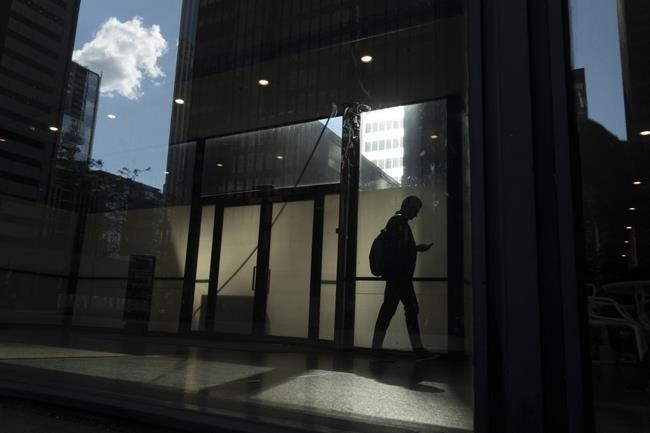TORONTO — Canadian companies are making uneven progress on efforts tomake workplaces more inclusive and equitable for Black workers, according to a survey from KPMG in Canada.
In the results of the survey released Monday, a little over 80 per cent of respondents said employers are making improvements — but a similar proportion said they’ve experienced some form of racism or microaggression in the workplace in the past year.
“While there is the overarching perception that progress has been made, still the majority, 81 per cent of people, are feeling racism, and that's a very scary reality,” said Amanda Bartley, senior manager of management consulting at KPMG in Canada.
The share of Black people experiencing some form of discrimination was up about 10 percentage points from last year’s results, which suggests companies are not pushing below the surface enough to get to the heart of the issues, said Bartley, who is co-chair of the firm’s Black Professionals Network.
To get at the deeper issues, it’s important companies listen to Black employees, she said.
“Having safe spaces where people can share what they're experiencing, without the potential risk of backlash and repercussions, is a great thing.”
The results of the survey of 1,000 employed Canadians who self-identified as Black also showed that women continue receive less support than men.
Only 68 per cent said their employer had an allyship training program, compared with 81 per cent of men. Women also reported lower levels of being able to bring their genuine self to work, or having allies at work who have spoken up for them.
“It's important to recognize that Black women continue to be one of the most marginalized groups in workplaces, in society,” said Bartley.
She said companies need to work on creating environments where Black people can stay truer to their values, and don’t feel they need to conform to prescribed mainstream standards of appearance or behaviour just to protect themselves.
“It's really pushing past the respectability politics, which is a conversation that continues to come up. It’s obviously come up more and more with the state of the world.”
The gender disparities among Black workers was also something Rob Davis, KPMG’s chief inclusion, diversity and equity officer, raised as a key concern.
“There is a very different experience in terms of Black men versus Black women, so that’s an area as Canadian businesses we need to continue to focus on.”
However there are areas for optimism, said Davis, including the 76 per cent of respondents who said that compared with four years ago, their company now has a Black person in the C-suite or on their board of directors.
“That to me is huge, because until Canadian business sees that representation at the senior levels ... it's going to be tough to change.”
The third edition of the survey, conducted between mid-December and January, found there are also concerns that as the economy slows, some of the gains in inclusion could be lost.
About 80 per cent said they believe Black or racialized people were among the first to lose their jobs over the past year, and as many as 73 per cent said their career progress didn’t materialize because the company was preparing for a slowdown.
It’s important to look beyond a last-in first-out approach, said Davis, and for companies to look at everyone's talent, and consider some of their best might have been recently hired.
To push toward more inclusion and equity, companies also need to look at the data and set targets, he said. KPMG has set representation targets for women and people of colour in the partnership level of the firm, and goals for positions below that level for Black and Indigenous people and those with disabilities.
The firm has also tied partner compensation to the targets.
“For companies to really move the dial, set targets — not quotas. Quotas are a dirty word for me — put in place concrete actions to meet those targets, and hold your senior leadership accountable,” said Davis.
With so much going on, businesses and leaders can get distracted, but it’s important to keep working on these goals, he said.
“We’ve got to make sure that everybody has the same opportunity to achieve success in Canadian business. As a Canadian society, I think it's important for us to continue to focus on this, and it's going to make us, make the economy, more vibrant and richer.”
This report by The Canadian Press was first published Feb. 5, 2024.
Ian Bickis, The Canadian Press



